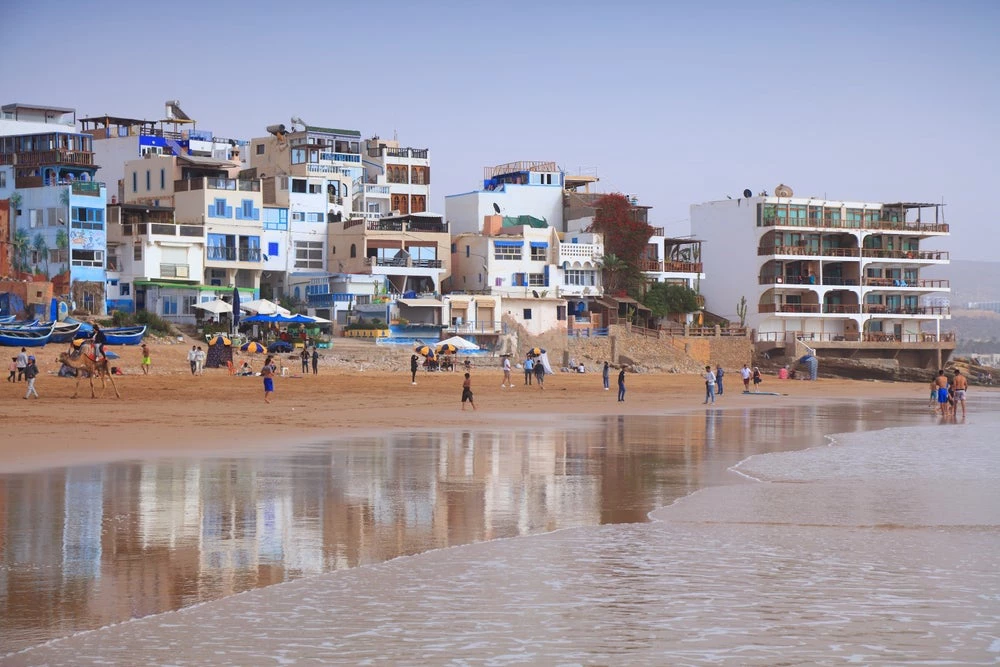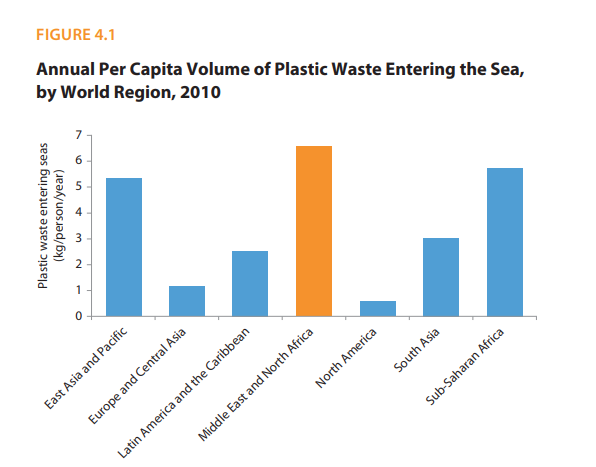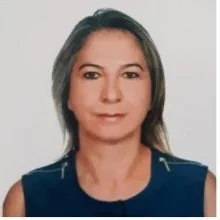 Taghazout, Morocco coast. (Shutterstock.com/Tupungato)
Taghazout, Morocco coast. (Shutterstock.com/Tupungato)
High levels of marine and coastal pollution in the Middle East and North Africa (MENA) pose a severe threat to the region’s “blue economy,” which is a key lever for economic growth in the region. The MENA region has the highest per capita plastic footprint and an average MENA resident releases more than 6kg of plastic waste into the ocean every year. Today, the Mediterranean Sea is one of the world’s plastic pollution hotspots. To support efforts to end plastic pollution in the region, the World Bank hosted a virtual regional knowledge exchange in May 2023 to discuss solutions and actions.

The exchange convened more than 100 representatives from Egypt, the West Bank and Gaza, Lebanon, Morocco, and Tunisia to swap lessons learned and good practices in the battle against plastic pollution that can also unleash the full potential of the blue economy. Each above mentioned country’s unique plastic pollution challenge was unpacked, with several common themes emerging.
Here are 6 things we noticed happening across the region:
-
Actions should be taken along the entire plastic value chain, from reducing production and usage of plastic to improving its solid waste management and cleaning up existing pollution in the ocean.
-
Governments are increasingly aware of the need to develop waste management legislation and policies that use circular economy approaches to target plastic pollution.
-
National diagnostics reports and baseline assessments conducted with the World Bank’s assistance are useful tools for shaping national actions.
-
Collaboration is key to managing the plastics pollution challenge. Several governments shared their experience in partnering with civil society organizations to run public awareness-raising and cleanup campaigns.
-
The private sector was identified as an important partner in the transition to a circular economy. Entrepreneurs can provide innovative solutions and assist government’s efforts.
Despite positive shifts in plastic pollution awareness and management, plastic pollution continues to cost countries in the MENA region about 0.8% of GDP, on average, every year. Plastic pollution impacts tourism, fisheries, shipping, and the lives of people across the region. No country working in isolation will be able to effectively address a challenge of this scale alone.
Oceans know no boundaries. This makes plastic pollution a transboundary issue that requires transboundary solutions. The Environment, Natural Resources and the Blue Economy Global Practice, Middle East, and North Africa Region (SMNEN) unit and PROBLUE—an umbrella multi-donor trust fund administered by the World Bank that supports the sustainable and integrated development of marine and costal resources in healthy oceans—are working within countries and across the region to develop and showcase the evidence, strengthen scientific capacities, and create opportunities for cross-sectoral, regional collaboration. Together, these elements will provide all interested stakeholders with the information they need to collectively reach decisions that will not only improve the blue economy, but enable it to play a leading role in the region’s development.
Key facts
-
In the Mediterranean Sea, the Blue Economy annually generates US$ 450 billion.
-
Plastic pollution is a threat to the growth potential of the Blue Economy, which includes fisheries, coastal tourism and maritime transportation, as well as emerging sectors like biotechnology, renewable maritime energy, and aquaculture—all of which depend on healthy oceans that are able to deliver key ecosystem services.
-
MENA has the highest per capital footprint of plastic leakage to the marine environment. The average MENA resident releases more than 6kg of plastic waste into the ocean every year.
-
Ending plastic pollution would reduce threats to human and environmental health while preventing carbon emissions and supporting the region’s Blue Economy.
-
Action needs to be taken at every stage of the plastic lifecycle to end plastic pollution – from reducing the production and redesigning products to improving waste management.






Join the Conversation